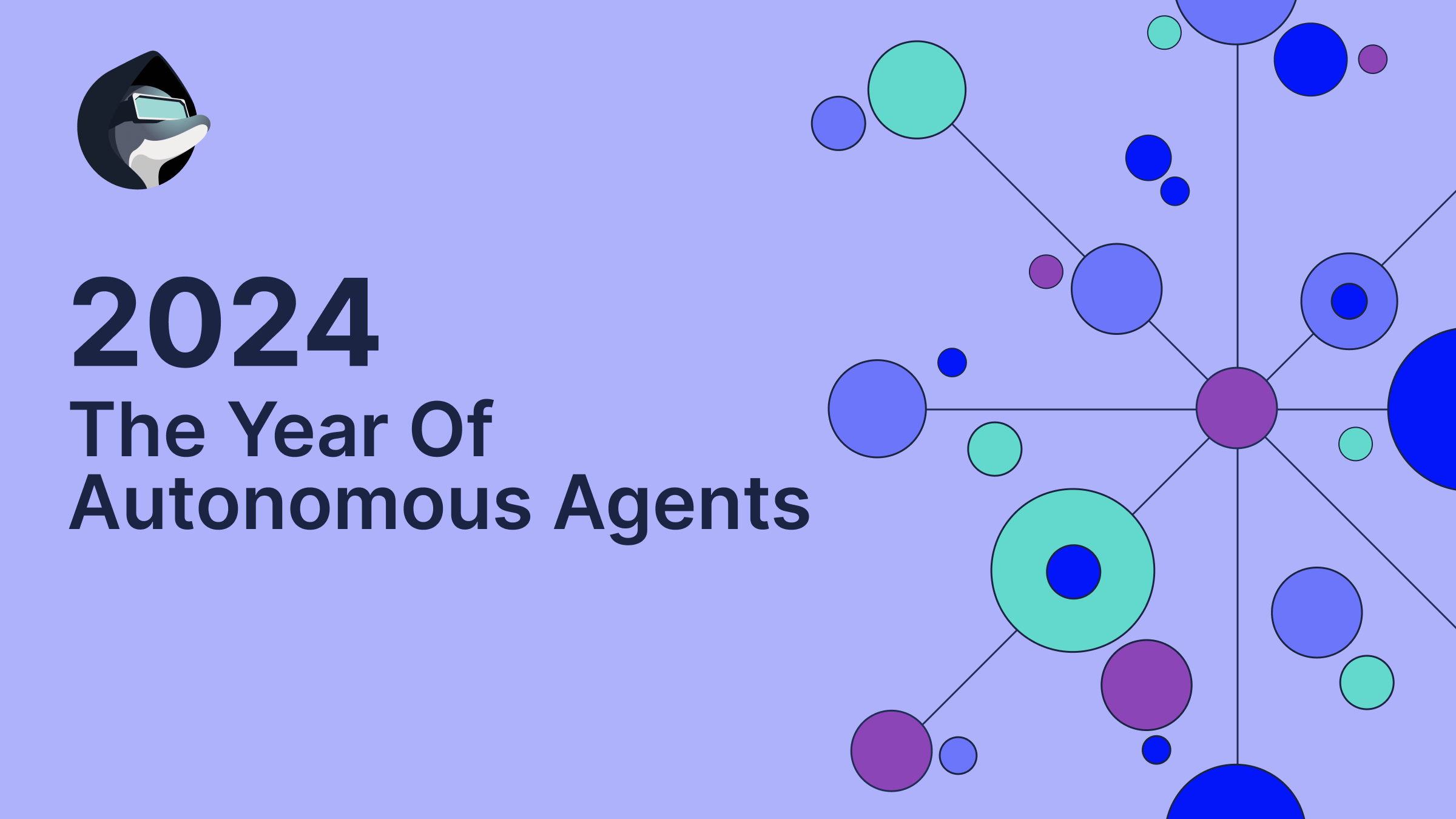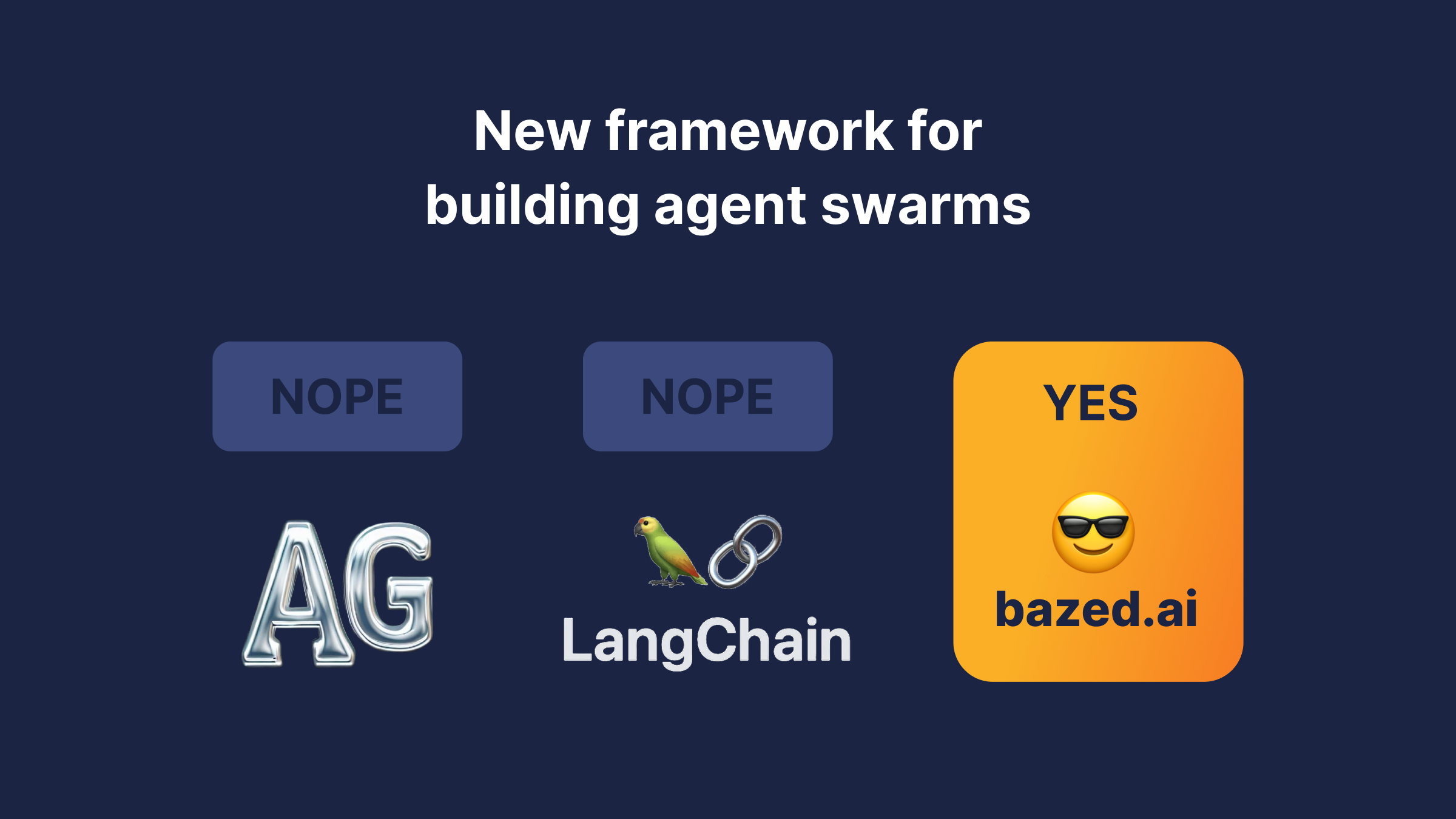2024, the year of autonomous agents.

Agents are the next platform
"Agents will be the next platform. Agents are not only going to change how everyone interacts with computers. They're also going to upend the software industry, bringing about the biggest revolution in computing since we went from typing commands to tapping on icons. In short, agents will be able to help with virtually any activity and any area of life. The ramifications for the software business and for society will be profound." Bill Gates notes
Role upgrade from AI Copilot, to AI Pilot
In 2023 AI GPTs provided advice to us and performed simple tasks within limited context but still very much with us, humans, being in a driver seat. In 2024 the AI agents will do tasks for us with increased levels of autonomy, in increasingly complex environments.
These programs are becoming better at modelling a domain. They are also becoming more directly connected to effect changes like configuration and code. At some point, the role of these agents will flip from being an assistant to taking a more proactive role.
Monk is leading the way in the cloud with its multiple AI Cloud Agents. Monk AI Builder, Monk AI Consultant, Monk AI Optimiser perform more and more tasks related to deploying and operating applications in the cloud in an autonomous way. All our agents are built on top of monkOS, our cloud operating system.
Monk AI Builder is a great example of an autonomous agent. Without a human in the loop it:
- understands your app’s source code,
- writes custom Dockerfiles from scratch,
- builds containers, configures dependencies and maps connections between services,
- writes all files necessary to build and deploy your app and its dependencies,
- tests-runs everything to make sure it works and fixes its own mistakes.
As a result a developer receives a neatly commented PR ready to be reviewed and merged. In short, it does everything that a human developer would do but it does it 56x cheaper and 19x faster with a success rate of 75% (and rising).
Agent swarms have much higher success rate at completing a task.
From the user's perspective, Monk AI Builder may appear as a single agent. However, it consists of a collaborative swarm of seven specialized agents, each proficient in a specific task. Together, they work to deliver optimal outcomes.
Autonomous agents will be easier to write and deploy with new frameworks such as 😎 bazed.ai

Currently, the agent swarms are not easy to build and deploy. Langchain covers prompt engineering but doesn’t help with deployment. Frameworks like AutoGen give you agents that are too unpredictable to put in production.
Using the bazed.ai framework helped us to rapidly develop, debug and secure our skilled agent swarms and deploy them in production over the course of weeks. Good news, this framework is being open sourced soon. You can join here for an early beta.
Lower error rate increases trust. Higher autonomy increases convenience. Combination of both will lead to greater adoption.
In 2024 we’ll see this upgrade in capabilities as AI not only meets, but exceeds human level performance in many domains. Like with every relationship, trust increases with time and lower error rate. With highly skilled agents this will increase rapidly.
Eventually, it may become necessary and natural to entrust digital robots with more responsibilities, not only for convenience but also to reduce liability.
We've learnt a lot from building Monk AI DevOps agents. We will be sharing all the lessons we've learnt in the coming weeks.